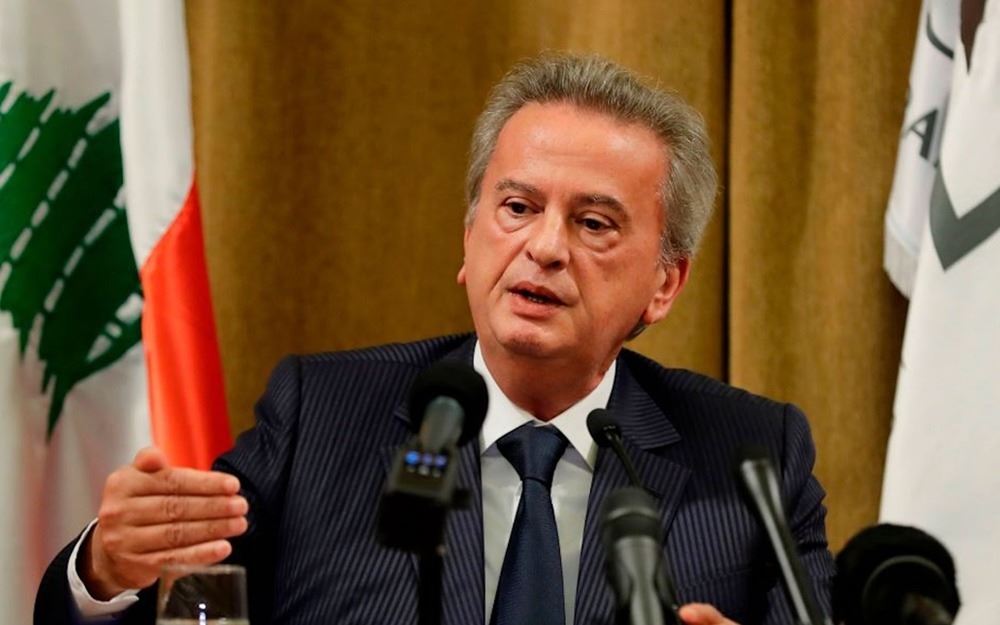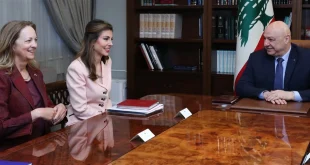وئام وهاب يكشف: ماهر الأسد في روسيا ومستقبل المنطقة محفوف بالمخاطر
في تصريح لافت، أعلن رئيس حزب التوحيد العربي والوزير السابق وئام وهاب أن ماهر الأسد، شقيق الرئيس السوري بشار الأسد، يتواجد حاليًا في روسيا. وأكد وهاب في حديثه مع “سكاي نيوز عربية” أن روسيا تلعب دورًا حيويًا في إدارة الملف السوري بالتنسيق مع القوى الدولية، وهو ما انعكس على مجريات العمليات العسكرية داخل سوريا.
التوازنات الدولية تؤثر على الميدان السوري
وصرّح وهاب بأن الجيش السوري لم يُطلب منه التدخل في بعض المناطق نتيجة اتفاقات دولية تهدف إلى تخفيف حدة التصعيد. وأضاف:
“لو طُلب من الجيش السوري خوض المعارك في جميع المناطق، لكانت الحرب استمرت لعشر سنوات إضافية.”
وأشار إلى أن القوات الإيرانية التي كانت تسيطر على مساحات كبيرة من سوريا غادرت البلاد بشكل كبير، موضحًا أن الدور الإيراني في الميدان العسكري تضاءل خاصة في مناطق مثل حلب.
زيارة جنبلاط إلى دمشق: خطوة مبكرة؟
علق وهاب على زيارة رئيس الحزب التقدمي الاشتراكي السابق، وليد جنبلاط، إلى دمشق، واصفًا إياها بأنها “مبكرة جدًا”. وأضاف أن الأقليات، خاصة الدروز، ما زالت تعيش حالة من القلق نتيجة ممارسات “هيئة تحرير الشام” في إدلب.
وصرح وهاب بأن “هيئة تحرير الشام” فرضت تعليمات دينية على الدروز في بعض المناطق، ما أثار حالة من الخوف بين أبناء الطائفة. لكنه كشف عن تفاهمات تمت بين الهيئة وشخصيات درزية تقضي بعدم الاقتراب من المدن الدرزية المحيطة بدمشق مثل جرمانا وصحنايا والأشرفية. وأكد أن هذه التفاهمات تمت بالتنسيق مع شخصيات درزية بارزة، من بينها الشيخ موفق طريف، الذي لعب دورًا محوريًا في تأمين الحماية لتلك المناطق.
الارتباط بين استقرار لبنان وسوريا
شدد وهاب على أن استقرار لبنان مرتبط بشكل وثيق باستقرار سوريا، معتبرًا أن غياب النفوذ الإيراني في لبنان قد يكون عاملًا رئيسيًا في تحقيق الاستقرار. لكنه حذّر من أن أي تصعيد داخل سوريا قد يؤثر بشكل سلبي على لبنان.
وقال وهاب:
“تعزيز العلاقات العربية هو الحل الأمثل لاستقرار المنطقة. سوريا لا يمكنها استعادة مكانتها كدرة بلاد الشام دون عودتها إلى الإطار العربي.”
رفض الوجود الأجنبي في سوريا
وأكد وهاب أن الشعب السوري يرفض الوجود الأجنبي بكافة أشكاله، سواء التركي أو الإيراني. وأضاف:
“السوريون واجهوا الاحتلال التركي كما رفضوا الاحتلال الإسرائيلي، والآن يعبرون عن رفضهم لأي نفوذ إيراني في بلادهم.”
دور الجولاني في المشهد السوري
تحدث وهاب عن زعيم هيئة تحرير الشام، أحمد الشرع المعروف بـ”أبو محمد الجولاني”، مشيرًا إلى أنه ينفذ أجندة أمريكية ويحاول تقديم نفسه كشريك دولي. لكنه أضاف أن الجولاني يواجه تحديات كبيرة بسبب تعدد الفصائل المسلحة التي تعمل في سوريا، ما يعقد فرص نجاحه.
التعيينات الأخيرة تعمّق الأزمات
انتقد وهاب التعيينات الجديدة في سوريا، واصفًا إياها بأنها تزيد من تعقيد المشهد السياسي والاجتماعي. وخصّ بالذكر تعيين “زعيم ميليشيا محافظًا لمدينة حلب”، معتبرًا أن مثل هذه التعيينات تعكس ضعف الإدارة في معالجة الأزمات المتصاعدة.
تحديات المرحلة المقبلة
في ختام حديثه، حذّر وهاب من خطورة المرحلة المقبلة في ظل التوترات الإقليمية والدولية. وأكد أن الاستقرار في سوريا ولبنان لا يمكن تحقيقه إلا من خلال رؤية واضحة تعالج الأزمات المتراكمة وتضمن احترام سيادة الدول.
Wiam Wahhab Drops a Bombshell: Maher Al-Assad in Russia, and the Upcoming Phase is Critical!
In a striking revelation, Wiam Wahhab, the leader of the Arab Unification Party and former minister, announced that Maher Al-Assad, the brother of Syrian President Bashar Al-Assad, is currently residing in Russia. Speaking to Sky News Arabia, Wahhab highlighted Russia's pivotal role in managing the Syrian file in coordination with international powers, which has significantly impacted military operations within Syria.
Global Balances Shaping the Syrian Battlefield
Wahhab noted that the Syrian Army was not instructed to engage in certain areas due to international agreements aimed at de-escalation. He stated:
“If the Syrian Army had been tasked with fighting across all regions, the war would have lasted another ten years.”
He also pointed out that a significant number of Iranian forces, once dominating large parts of Syria, have now withdrawn. Wahhab emphasized that Iran's military influence has notably diminished, particularly in regions like Aleppo.
Jumblatt’s Visit to Damascus: A Premature Step?
Commenting on Walid Jumblatt's visit to Damascus, Wahhab described it as “too early.” He expressed that minorities, particularly the Druze, remain apprehensive due to actions by Hayat Tahrir Al-Sham (HTS) in Idlib.
He revealed that HTS imposed religious restrictions on Druze communities in certain areas, sparking widespread concern. However, Wahhab disclosed that understandings were reached between HTS and Druze leaders to ensure the protection of Druze-populated areas surrounding Damascus, such as Jaramana, Sahnaya, and Al-Ashrafiyah. These agreements, Wahhab added, were facilitated in part by prominent Druze figures, including Sheikh Muwaffaq Tarif, who played a key role in securing safety for these regions.
Lebanon-Syria Relations: A Shared Future?
Wahhab stressed that Lebanon's stability is intricately tied to Syria's stability. He remarked that the absence of Iranian influence in Lebanon could be a decisive factor in achieving stability. However, he warned that any escalation in Syria could negatively impact Lebanon.
He stated:
“Strengthening Arab relations is the cornerstone of regional stability. Syria cannot reclaim its position as the ‘Jewel of the Levant' without reintegration into the Arab framework.”
Syrian Rejection of Foreign Presence
Wahhab affirmed that Syrians reject all forms of foreign presence, whether Turkish or Iranian. He elaborated:
“The Syrian people resisted Turkish occupation, rejected Israeli presence, and are now expressing opposition to Iranian influence in their country.”
The Role of Jolani in the Syrian Scene
Addressing the leader of Hayat Tahrir Al-Sham, Ahmad Al-Shar’a, also known as “Abu Muhammad Al-Jolani,” Wahhab described him as operating under American directives. He noted that Jolani is attempting to position himself as an international partner but faces significant challenges on the ground due to the presence of multiple armed factions.
Recent Appointments Adding Complexity
Wahhab criticized recent appointments within Syria, labeling them as measures that exacerbate the already complicated political and social landscape. He singled out the appointment of a “militia leader as the governor of Aleppo,” arguing that such moves reflect a lack of effective governance in addressing the escalating crises.
The Challenges Ahead
In closing, Wahhab warned of the dangers in the coming phase amid regional and international tensions. He emphasized that stability in both Syria and Lebanon requires a clear vision to address lingering crises and ensure mutual respect for sovereignty.
Translated by international scopes team
المصدر: سكاي نيوز عربية
 International Scopes – سكوبات عالمية إجعل موقعنا خيارك ومصدرك الأنسب للأخبار المحلية والعربية والعالمية على أنواعها بالإضافة الى نشر مجموعة لا بأس بها من الوظائف الشاغرة في لبنان والشرق الأوسط والعالم
International Scopes – سكوبات عالمية إجعل موقعنا خيارك ومصدرك الأنسب للأخبار المحلية والعربية والعالمية على أنواعها بالإضافة الى نشر مجموعة لا بأس بها من الوظائف الشاغرة في لبنان والشرق الأوسط والعالم




